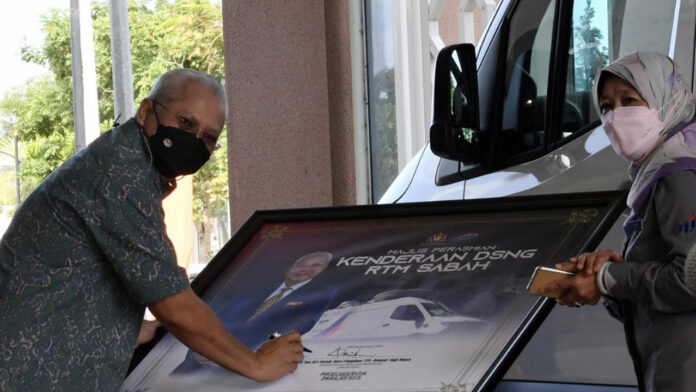KOTA KINABALU, March 29 — Communications and Multimedia Minister Tan Sri Annuar Musa today said it was not impressive for telecommunication service providers or telecommunication companies (telcos) to record profit of RM1 billion, but still provided unsatisfactory services to the people.
He said the government had invested billions of ringgit to provide telecommunication infrastructure, including fiber optic network hub point of presence (PoP), costing nearly RM4 billion, for the people without expecting any financial return.
Annuar said he had no objection to telcos making profits, but they had to be responsible by investing part of the profits to improve the quality of their services in line with the infrastructure development implemented by the government.
“The infrastructure is provided by the government, TM and others, but the last mile is provided by the telcos depending on the equipment they install at the tower… but for the telcos, they have their priority, if there are many customers in one area, they will concentrate in that particular area, elsewhere the equipment is not upgraded.
“This is why the 4G internet (speed) can be 10mbps to 100mbps depending on the ‘last mile’ hardware provided by the telcos. As such, I call on our telcos to go hand-in-hand (with the government) to provide the best service for the people,” he added.
He told this to reporters after launching the RTM Sabah Digital Satellite News Gathering (DSNG) Vehicle at the Ministry of Communications and Multimedia Integrated Complex in Kepayan here today.
According to Annuar, the 4G coverage in Sabah is at 86 percent for populated areas, but the internet quality in some areas still does not reach the required speed.
“There are places with 10 mbps, 12 mbps and about 20mbps, while our minimum quality for 4G LTE must be 35 mbps … if we want to reach that level, the populated areas much reach 60, 70, 100 mbps because when there are many people, the speed drops.
“4G is just a technology that allows it to provide higher (internet) capabilities, but how high will depends on the infrastructure and hardware provided,” he added.
Annuar said apart from upgrading the telecommunication equipment at the towers, telcos were also recommended ro work with the relevant parties to increase the capacity of the tower itself, among others in terms of providing backup power supply components.
“When electricity supply is cut off, the internet will also be automatically cut off because the tower depends on electricity supply.
“As such, telcos and those reponsible can look into making hybrid towers, such as having power supply from solar panels and generators, not just providing services,” he added.’
He said efforts to provide high-speed internet facilities could not be achieved without telcos responding to the government’s call to jointly improve telecommunication facilities for the people.
















